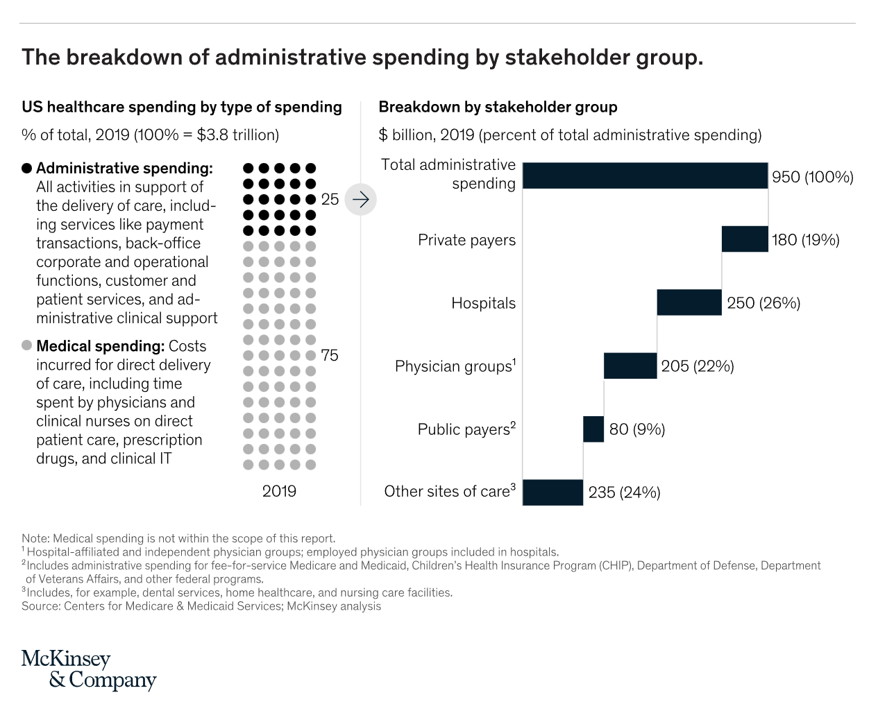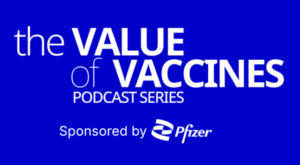“Complexity is Profitable” in U.S. Healthcare – How to Save a Quarter-Trillion Dollars

In the U.S., “Health care is complicated because complexity is profitable.” So explain Bob Kocher, MD, and Anuraag Chigurupati, in a viewpoint on Economic Incentives for Administrative Simplification, published this week in JAMA. Dr. Kocher, a physician who is a venture capitalist, and Chigurupati, head of member experience at Devoted Health, explain the misaligned incentives that impede progress in reducing administrative spending. This essay joins two others in the October 20, 2021 issue of JAMA which highlight administrative spending in American health care: Administrative Simplification and the Potential for Saving a Quarter-Trillion Dollars in Health Care by Nikhil Sahni, Brandon
Living paycheck to paycheck: what it means for health
While 50% of Americans feel they have a sound financial position, the other half is living paycheck to paycheck. 8% say they can’t even pay for essentials. The second annual Allstate “Life Tracks” Poll finds American adults split between have’s and have not’s, with even the “have’s” feeling less than financially literate. There is an equal split between people who feel they’re in an “excellent” or “good” financial position compared with those who feel they’re in financially “fair” or “poor” shape. Men feel more financially secure than women; 3 in 4 single parents feel less well-off compared to the average
The state of health IT in America: thinking about the Bipartisan Policy Center report on health IT
There are few issue areas within the Beltway of Washington, DC, that have enjoyed more support across the political aisle than health care information technology. In 2004, George Bush asserted that every American would/should have an electronic medical record by 2014. Since then, Democrats and Republicans alike have supported the broad concept of wiring the U.S. health information infrastructure. With the injection of ARRA stimulus funds earmarked in the HITECH Act to promote health providers’ adoption of electronic health records, we’re now on the road to Americans getting access to their health information electronically. It won’t be all or even
Medicaid, the new-new health plan – is it ready for prime-time?
“The impending Medicaid expansion will be the single biggest change in the program since its inception in 1965,” according to an analysis in the New England Journal of Medicine dated November 24, 2010. The Patient Protection and Affordable Care Act (PPACA, or ACA for short) will newly-insure 32 million Americans through dual strategies of (1) mandating uninsured people to buy into a health plan, via subsidies and health insurance exchanges; and, (2) expanding Medicaid to cover uninsured people with lower incomes. The CBO estimates that each of these tactics will add 16 million, for the total of 32 million people entering insurance plans
Can health IT transform the U.S. economy? The White House thinks so
The American Recovery and Reinvestment Act (ARRA, aka ‘stimulus funds’) is investing $100 billion worth of U.S. taxpayer dollars in projects meant to transform the American economy. $20-some billion of these funds are being earmarked for health information technology, which the White House sees as part of a “platform for private sector innovation” in a report published August 24 2010, The Recovery Act: Transforming the American Economy Through Innovation. Health IT (HIT) is bucketed with broadband and smart grid technology as planks in this economic-transformational platform. Among these three pillars, compare the $20 billion going to health IT with the $6.9 billion being
Meaningful use: mandates, menus and morality
“We are only as good in treating patients as the information we have,” opined Dr. David Blumenthal, the national coordinator for health information technology in the Department of Health and Human Services, during yesterday’s launch of the new regulations on the meaningful use (MU) of health information technology. In the health care world, yesterday featured a star-studded line-up (live and via webcast) that ushered in the long-awaited meaningful use regulations that provide the roadmap for the adoption of electronic health records (EHRs) for providers, hospitals and doctors alike. Simultaneously, Dr. Blumenthal’s 4-page summary of the reg’s was featured in a tidy, useful article in the New
The road to meaningful use has many bumps along the way, CIOs say
While 1 in 2 health CIOs say they’ll be prepared to apply for stimulus funding to adopt electronic health records in 2011, 80% are concerned about their ability to meet the requirements of meaningful use (MU). This lack of confidence on the road to MU is based on a host of challenges, from reporting requirements and lack of clarity of MU criteria to availability of IT talent and worries about access to capital. PricewaterhouseCoopers’ Health Research Institute (PwC) surveyed 120 health care CIOs and IT executives and published the detailed findings in the report, Ready or not: On the road to
Economics and health information technology are top challenges for physicians in 2010
While practice economics have always been the lifeblood for doctors’ businesses, this year, 7 of their top 10 challenges have to do with some aspect of finance: rising costs, uncertainty of Medicare reimbursement, managing compensation, negotiating payer contracts, and collecting payments from patients themselves. The other key hassle in 2010 for physicians is selecting and implementing an electronic health records system, #3 in the top-of-mind challenges for American doctors. The Medical Group Management Association, the advocacy group for physicians working in groups, published a survey this week conducted among its members in February and March 2010. Notice all the yellow shading in the chart?
Health plans are in a service business: it’s not only about costs and benefit design for employers
J.D. Power, an expert in understanding satisfaction across industries, has looked under the hood of employers and their satisfaction with health plans. In summary: it’s not only about the benefits and costs when it comes to health plan satisfaction. For employers, satisfaction is also based on near-equal parts of “service” in 3 guises: account servicing from the employer’s point of view (where more communication from the plan is seen as better than less); employee plan service experiences; and problem resolution. For the 4 in 5 employers who have had problems with health plans (that’s 79% of employers), it’s less about costs and
How to find $150 billion for health care: get rid of paper
Paper, Benjamin, Paper. The lowest-hanging fruit opportunity in reforming health care today is paper. Getting rid of it, that is. In their Recommndations to the Obama Administration and 111th Congress, Ingenix says that, “Administrative cost savings are win-win propositions, benefiting all stakeholders.” Health Populi’s Hot Points: As Congress continues to wrestle with what $20 billion can do for electronic medical data in the U.S., addressing administrative waste is in health is an opportunity to mine some found money which won’t require a 10-year wait for an ROI. The point here is to move toward administrative efficiency in parallel with migrating
Affordable care and better information: what Americans want from a new-and-improved US health system
Anxiety about health care costs tops American citizens’ concerns about health care in the U.S. Rich, poor, insured or un-, 2 in 3 Americans worry about the affordability of health care in America. So it follows, then, that among those without health insurance, 57% blame their uninsured state on the fact that they simply cannot afford it, as shown in the table on the right. Beyond this group, 30% of the uninsured cite the employer’s role in health insurance: 14% aren’t employed, 9% have employers who don’t offer coverage, and 7% are “between jobs.” These findings come from





 Thanks to Jennifer Castenson for
Thanks to Jennifer Castenson for  Jane joined host Dr. Geeta "Dr. G" Nayyar and colleagues to brainstorm the value of vaccines for public and individual health in this challenging environment for health literacy, health politics, and health citizen grievance.
Jane joined host Dr. Geeta "Dr. G" Nayyar and colleagues to brainstorm the value of vaccines for public and individual health in this challenging environment for health literacy, health politics, and health citizen grievance.  I'm grateful to be part of the Duke Corporate Education faculty, sharing perspectives on the future of health care with health and life science companies. Once again, I'll be brainstorming the future of health care with a cohort of executives working in a global pharmaceutical company.
I'm grateful to be part of the Duke Corporate Education faculty, sharing perspectives on the future of health care with health and life science companies. Once again, I'll be brainstorming the future of health care with a cohort of executives working in a global pharmaceutical company.